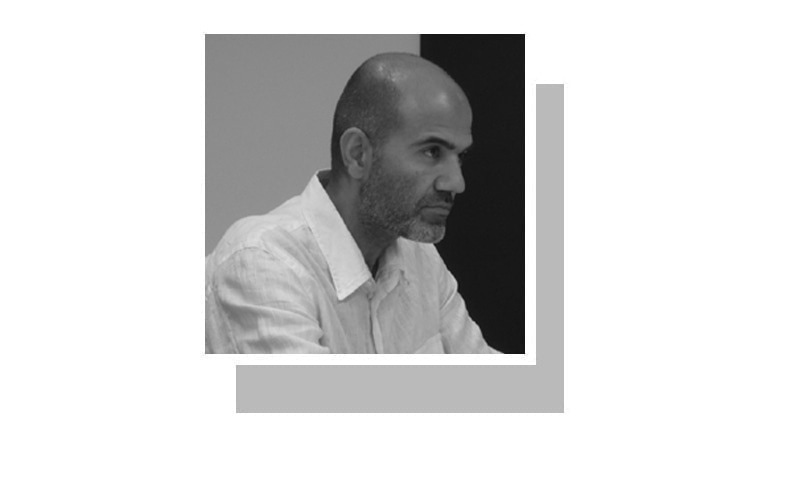FOR weeks extending into months, Pakistan’s intellectual and political mainstream has insisted that there is no option but to revive the IMF loan programme. The frank admission made by members of the treasury benches in parliament that this is an ‘IMF budget’ that the country had to take on simply confirms what is purportedly unchallenged common sense: there is no alternative (TINA).
Editorial: IMF agreement
The acronym TINA came into widespread circulation in the late 1990s when virtually one-size-fits-all IMF- and World Bank-dictated economic policies were foisted upon much of Latin America, Africa and Asia. Until the end of the Cold War, the state acted at least to some extent in favour of labour by regulating capital, but generations that have come of age after the mid-1990s have been made to believe that there is now only one workable economic model — neoliberalism.
Make no mistake: TINA was a concerted ideological project that continues to this day, despite the fact that neoliberal economic fantasies peddled by a globalised class of profiteers and states have deepened inequality, led to dispossession of working masses from jobs, housing and life itself, and wreaked havoc on the natural environment.
TINA is based around the fact that we do not export enough to cover our imports, while our revenues are perpetually less than our expenditures, and so we need loans to get by. Insofar as ‘structural reform’ entails increasing our exports, global creditors like the IMF ‘encourage’ local producers to become outsourcing partners of MNCs by treating workers like serfs. When it comes to reducing expenditures, they never flinch when our oligarchic rulers slash pro-poor subsidies, health, education and other social sector spending.
No thought is given to an alternative economic order.
By the TINA metric, the US should take more IMF loans and adopt conditionalities than any other country. In 2021 alone, the US fiscal deficit was almost $3 trillion. But Washington will never go to the IMF and beg for loans and then take on policy conditionalities accordingly because the dollar is the world’s reserve currency and the rest of us fund its deficit. In short, ‘structural reform’ is essentially a rinse-and-repeat political slogan that serves the interests of global investors, firms and the most powerful states.
TINA fiction continues to thrive in Pakistan because our political and economic imagination has been stunted by ‘experts’ who claim to be acting on the basis of ‘objective’ economic facts which, in fact, are largely ideological. None of the explicitly political players in this nauseatingly repetitive story is interested in putting the brakes on unrestrained capital accumulation and the pillage of what remains of the commons.
In our case, all parties who have held the reins of government in recent times, and of course their khaki patrons, prefer to engage in blame games against one another rather than offer substantive visions of an alternative economic order.
The IMF pretends to be politically uninterested and offer what it claims only to be ‘technocratic’ solutions. All donors — including the Chinese whose ‘Beijing Consensus’ is often described as a direct challenge to the ‘Washington Consensus’ — demand ‘structural reforms’ to suit them whilst claiming they have no political interests of their own.
Progressive movements in Latin America offer a clear counterfactual: there are meaningful alternatives to neoliberal orthodoxy that can repeal at least some of the privileges of financial oligarchs and state elites and thus meet the needs of the mass of people, whilst also making some concessions to future generations. Even in North America and Western Europe, where progressive discourses have made a comeback, TINA slogans are increasingly passé and redistribution is back on the agenda.
Yet Western states and multilateral donors continue to outsource neoliberal orthodoxy to Asia and Africa, even as the contradictions of our prevailing political-economic order become acute. We are supposed not to link the growing intensity of earthquakes, forest fires, cyclones and floods to the no-holds-barred accumulation regime that links domestic and global profiteers alike.
We are supposed not to ask too many difficult questions about the hundreds of millions of pounds that have been given back to real estate moguls like Malik Riaz through the collusion of Pakistani and Western officialdom. We are supposed to take for granted that only Russian oligarchs are bad, while all others are to be cheered on in the interests of ‘nation’ and its ‘development’.
News that the IMF programme was being restored was swiftly followed by Chinese and Saudi guarantees. Is this cause for celebration? Our ruling class, khakis at the helm, do not want young people to imagine politics as anything more than dole-outs, profiteering and hateful rhetoric. But the unbridled power of oligarchs, home and abroad, will not remain unchallenged forever.
The writer teaches at Quaid-i-Azam University, Islamabad.
Published in Dawn, June 24th, 2022














































